2013 Winner
Book Award Years
Robin Hammond - Condemned: Mental Health in African Countries in Crisis
Abandoned by governments, forgotten by the aid community, neglected and abused by entire societies: A voiceless minority resigned to the dark forgotten corners of churches, chained to rusted hospital beds, living out their lives behind the bars of filthy prisons. Lives condemned to quiet misery.
These are the mentally disabled living in Africa’s regions in crisis, countries ravaged by war, gripped by famine, or led by corrupt regimes.
Some have suffered severe trauma which has led to illness. Others were born with mental disability. Either way, in countries where infrastructure has collapsed, where displacement has driven the mentally ill away from services, treatment is often the same: a life in chains.
I started documenting the lives of the mentally ill in African countries in crisis in an attempt to raise awareness of their plight. I travelled to war ravaged areas of Congo, South Sudan, Somalia and Uganda. I spent time with the displaced in refugee camps in Somalia and Kenya. In Nigeria I went to see the impacts of corruption on facilities for the mentally ill.
After 12 years of documenting human rights issues, I’ve never come across a greater assault on human dignity. These people are unseen and therefore their suffering ignored. I want to see this work published so ignorance will no longer be able to be used as an excuse for inaction.
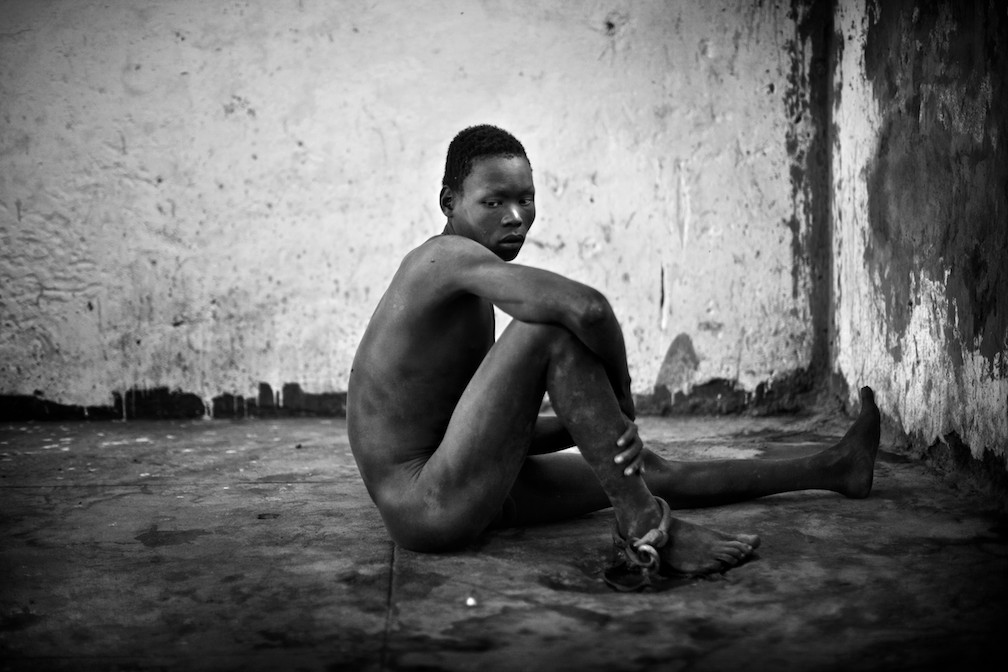
Severely mentally disabled men and women are shackled and locked away in Juba Central Prison for years on end. Juba, Sudan.
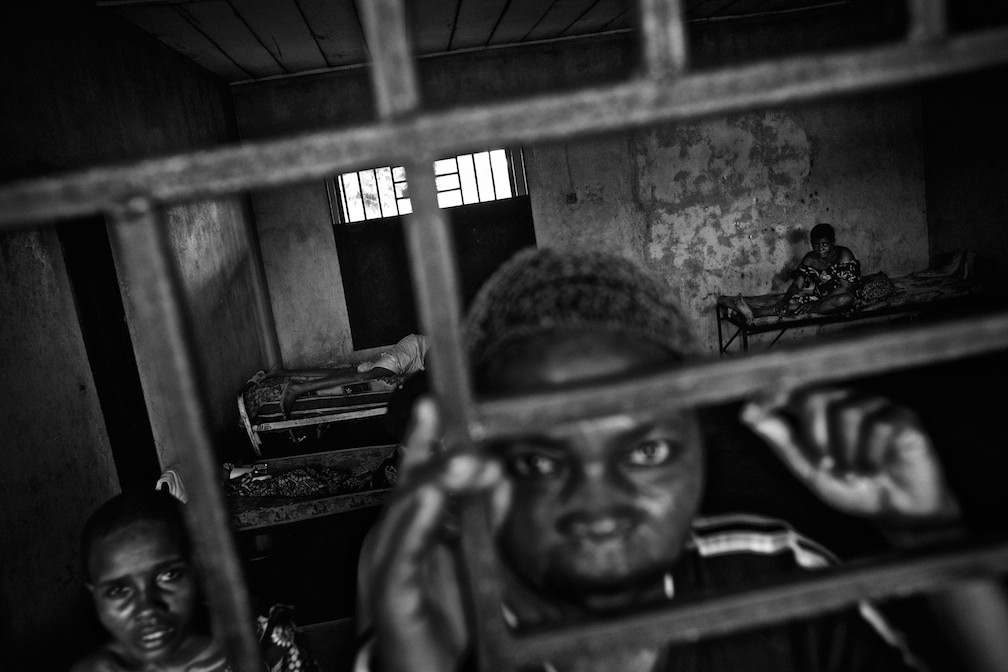
This Government run facility in the Niger Delta town of Eket is meant to be a Psychiatric hospital. In reality it is a prison. The oil industry that has brought billions of dollars into the Nigerian economy has arguably been a disaster for the Delta region from where it is extracted. Corruption, mass inequality and violence have plagued the region ever since the discovery of the resource. The Niger Delta, Nigeria.
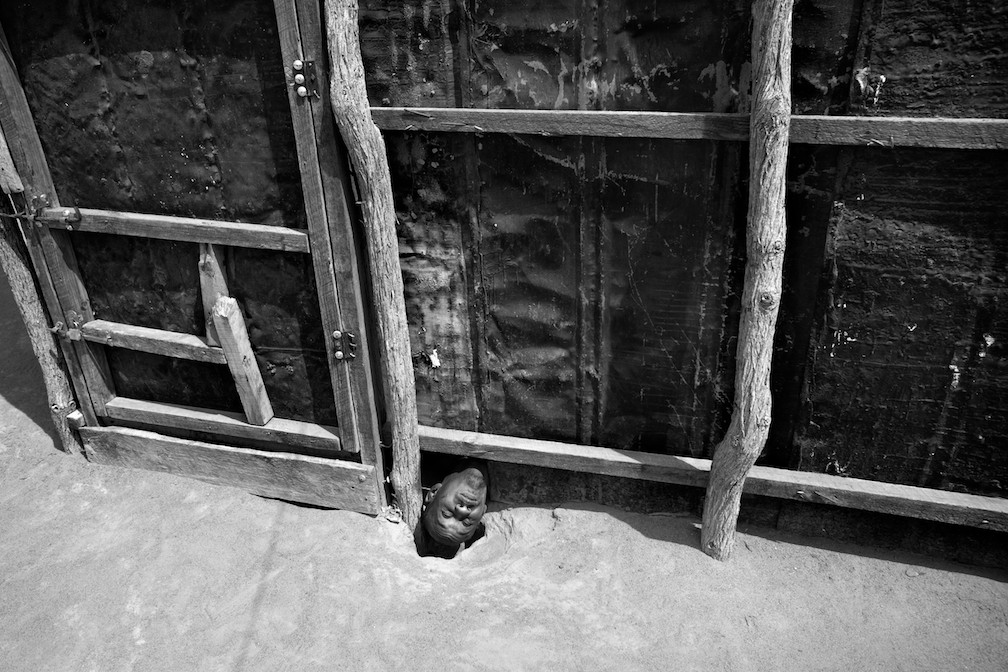
Abdi Rahman Shukri Ali, 26, has lived in a locked tin shack for two years. He stays with his family in Dadaab in Eastern Kenya, the world’s largest refugee camp, where Somalis fleeing conflict and famine have sought safety. Dadaab Refugee Camp, Kenya.
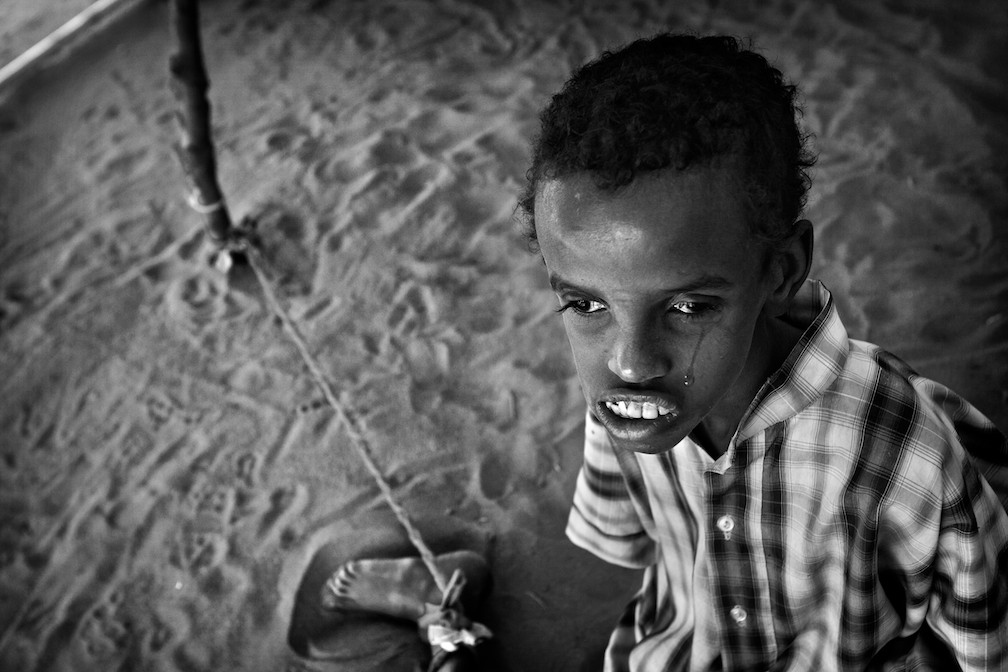
Thirteen-year-old Ahmed Adan Ahmed spends his days walking in circles, or sitting running his hands through the sand at his feet. For 10 years he has been tied to a stick under the tarpaulin of a tent in a camp for Internally Displaced People in Galkayo. His mother Fawzia sees no other option – if she doesn’t tie him he will run away. Galkayo, Puntland, Somalia.
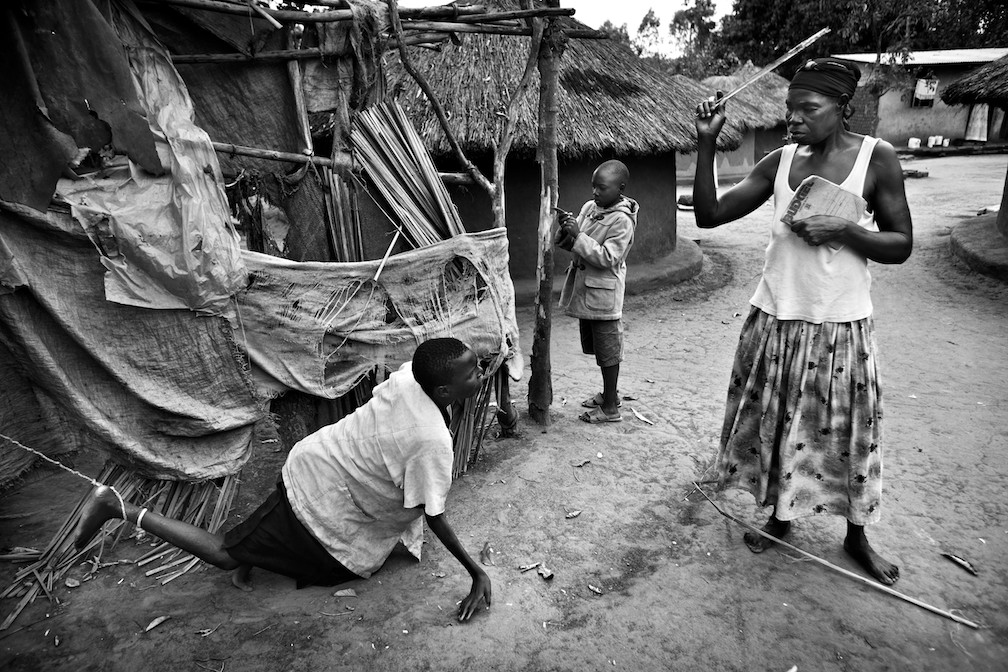
This 14-year-old boy has been tied up for six years. His mother refuses to have him admitted to Gulu Hospital which is only two kilometers away. Gulu, Northern Uganda.
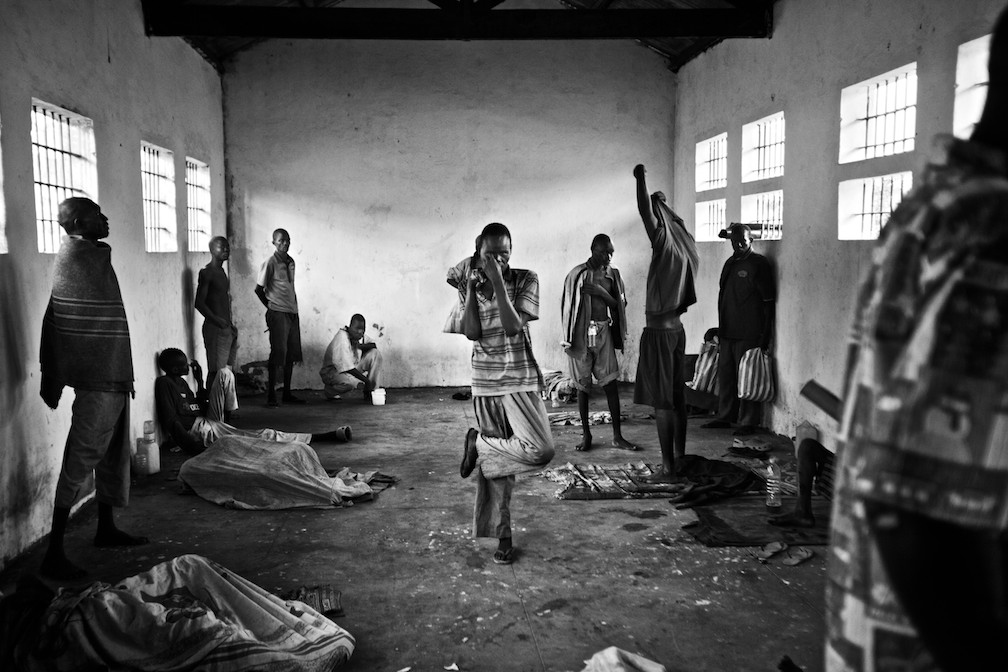
Some have suffered severe trauma which has led to their illness. Others were born with mental disability. Either way, in countries where infrastructure has collapsed, or where displacement has driven them away from services, treatment is often the same - a life immobilized by chains. The mentally ill men and women in Juba Central Prison are held in separate cells at night but during the day will mingle with the general prison population. Juba, Sudan.
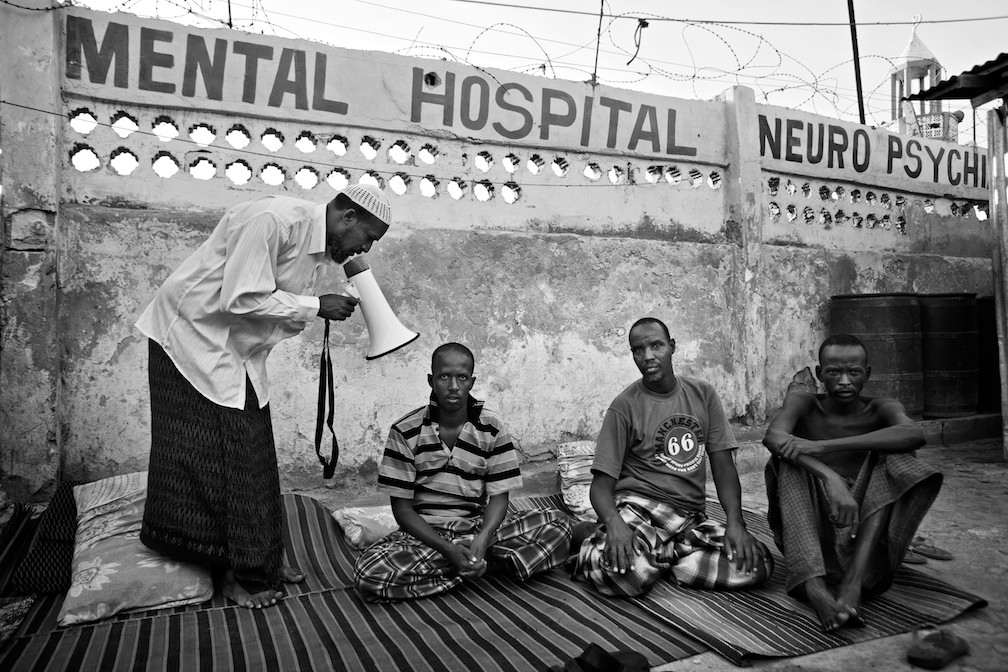
Many Somalis will take their mentally ill relative to traditional or Khoranic healers for treatment. Mogadishu, Somalia.
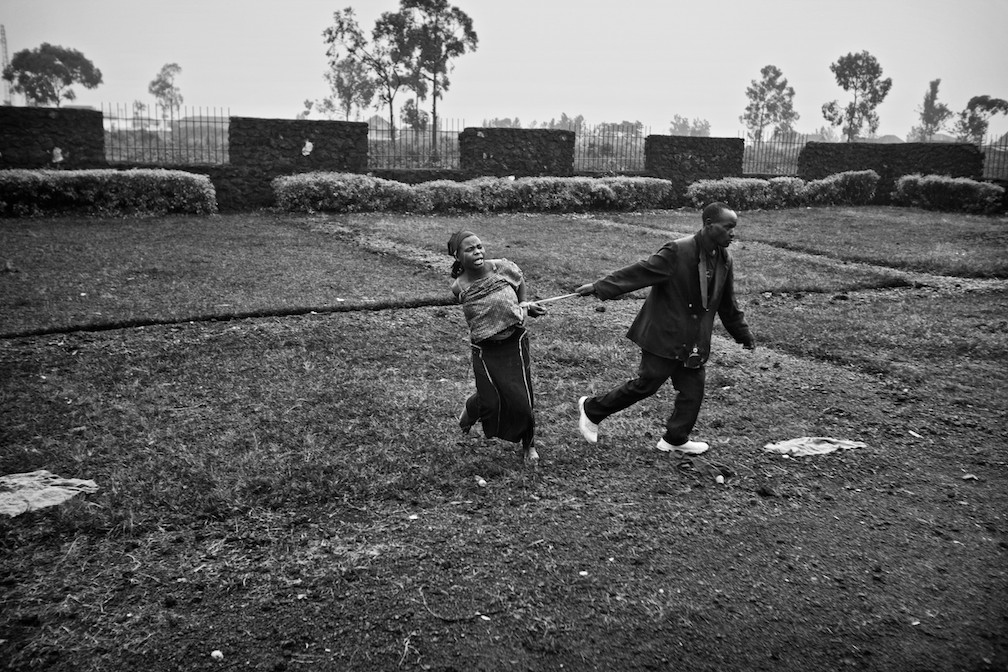
Due to insufficient staff numbers, family members are encouraged to stay with patients at Brothers of Charity Sante Mental. This relative would often beat, tie up and drag the patient when she did not obey his instructions. Goma, The Democratic Republic of Congo.
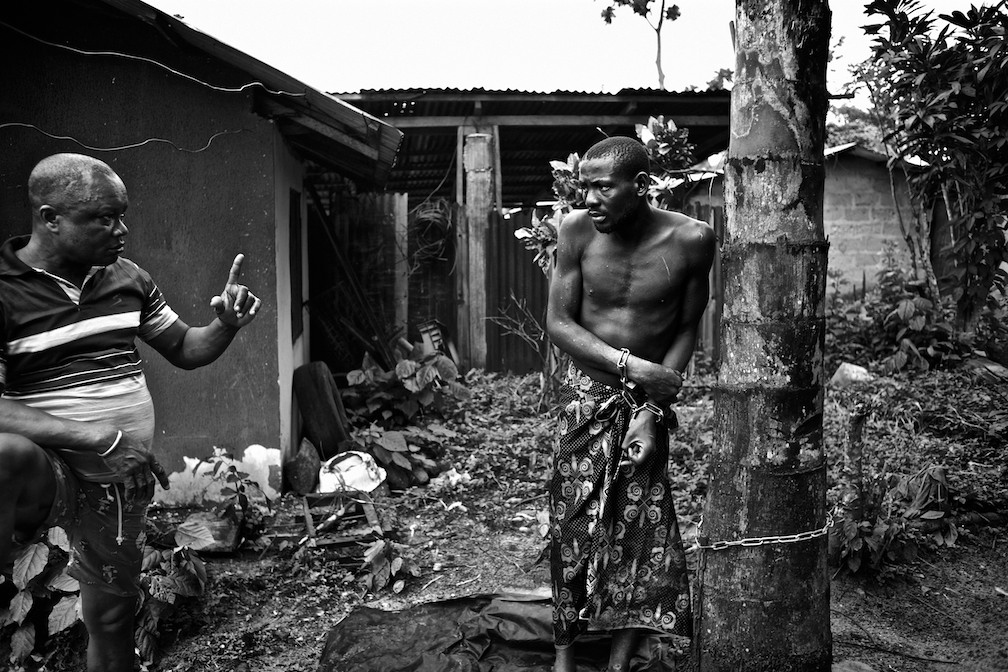
Native Doctor Lekwe Deezia claims to heal mental illness through the power of prayer and traditional herbal medicines. While receiving treatment, which can sometimes take months, his patients are chained to trees in his courtyard. One cries and says he is beaten regularly, and about how cold he gets and that he is attacked by mosquitoes every night. His body is covered in bites. The Niger Delta, Nigeria.
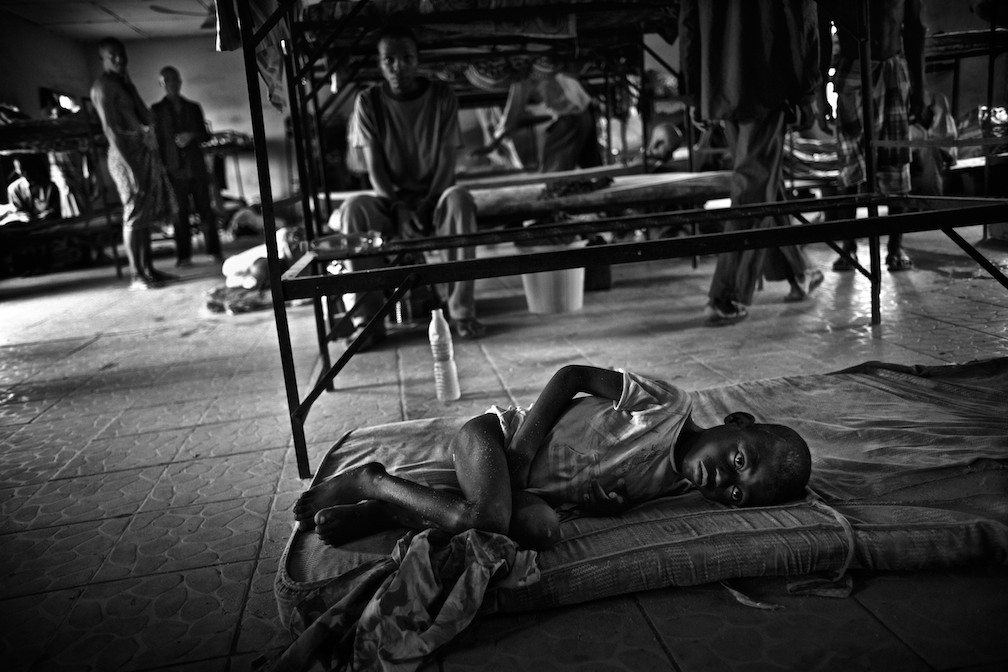
This so called Rehabilitation facility outside the Niger Delta city of Port Harcourt holds over 170 people with mental illness or mental disability. In 1999 it was turned into a place of incarceration for homeless people with mental illness that were cleared off the streets in a ‘clean up’ in anticipation of the FIFA World Youth Soccer Championship. They have been here ever since. While the staff denied that they house children, the photographer found, one mentally impaired child (around 8 years old) sleeping on the floor in the room for the “high risk” male inmates. The child had been there for 3 months. The Niger Delta, Nigeria.
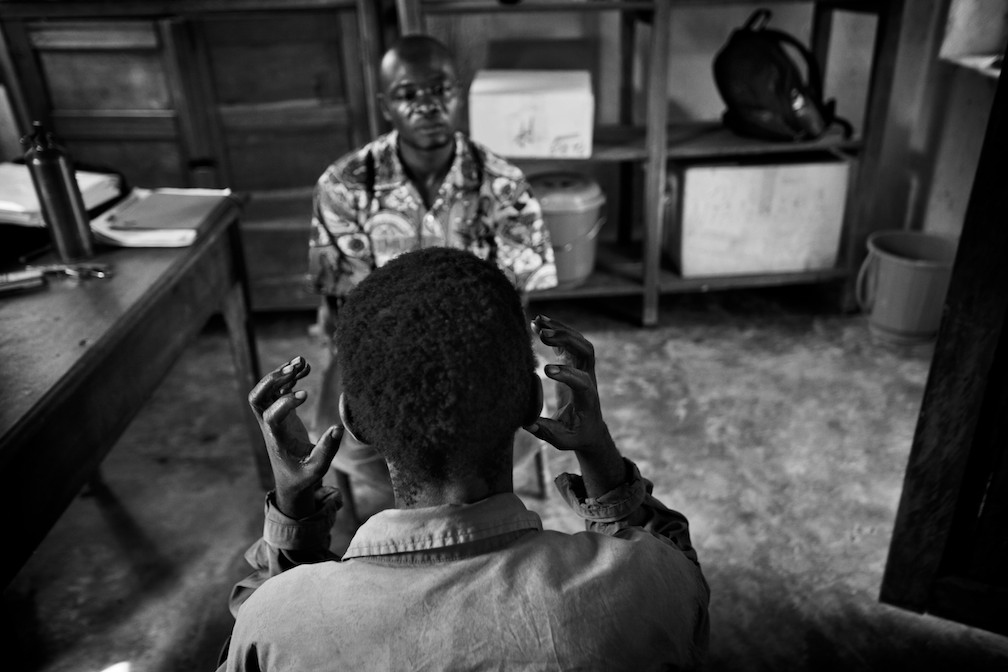 Mineyro Jean-Marie describes to Médécines Sans Frontières Psychologist Serge Nzuya Mbwibwi how he felt when The Lord’s Resistance Army attacked his family and attempted to kidnap his daughter. Niangara, Democratic Republic of Congo.
Mineyro Jean-Marie describes to Médécines Sans Frontières Psychologist Serge Nzuya Mbwibwi how he felt when The Lord’s Resistance Army attacked his family and attempted to kidnap his daughter. Niangara, Democratic Republic of Congo.
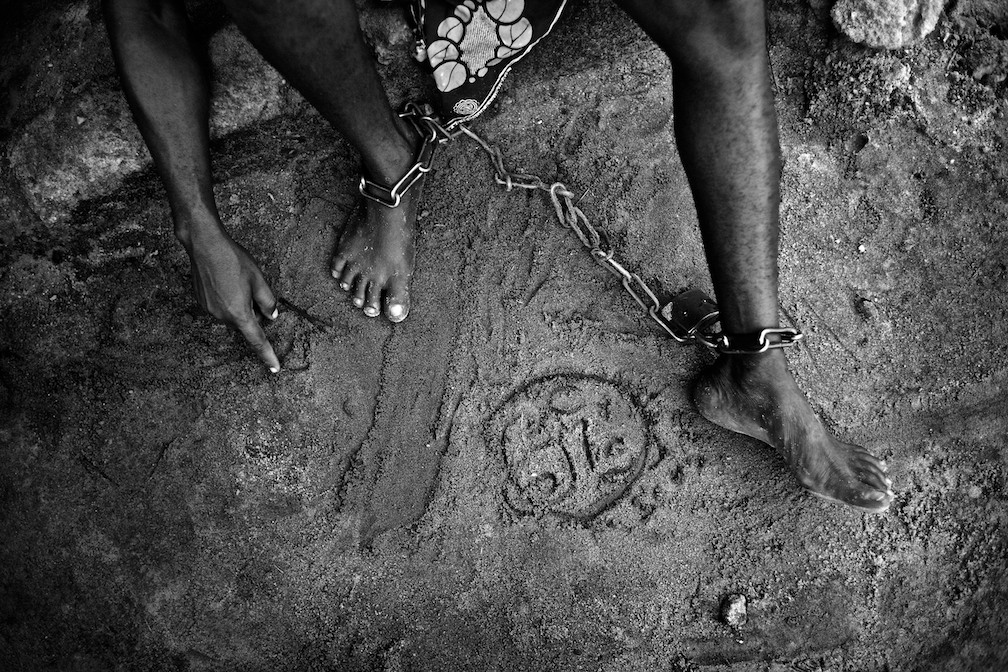
Reverend Apostle S.B.Esanwi, Doctor of Divinity, treats people with mental illness with prayer and traditional medicines which usually consist of roots and leaves crushed in water. He claims to have cured hundreds of patients. Many stay for months in his compound. Some are chained throughout their time there. The oil industry that has brought billions of dollars into the Nigerian economy has arguably been a disaster for the Delta region from where it is extracted. Corruption, mass inequality and violence have plagued the region ever since the discovery of the resource. In a society that cannot trust corrupt Government organizations, churches have become a sanctuary from the perceived wickedness and greed of the modern culture. In regions where both fortune and sickness are attributed to the spirit world, mental illness is considered a curse. Spiritual remedies are often sought, and chains regularly used as restraints. The Niger Delta, Nigeria.
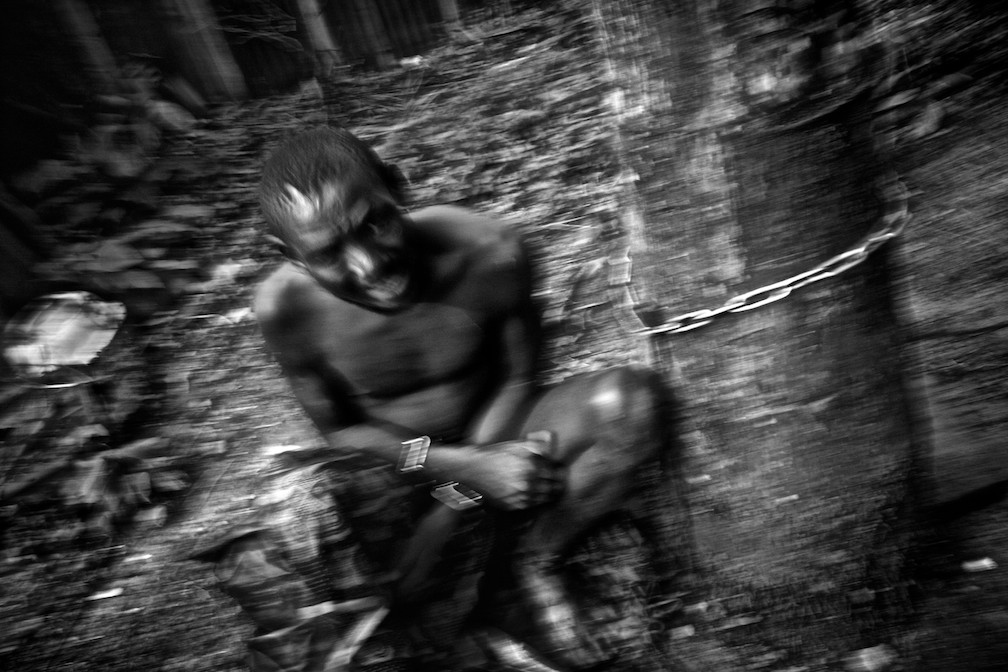
Native Doctor Lekwe Deezia claims to heal mental illness through the power of prayer and traditional herbal medicines. While receiving treatment, which can sometimes take months, his patients are chained to trees in his courtyard. They are not given shelter or protection from the elements. They are visibly terrified of the doctor. Away from the doctor the patients beg the photographer for food. They say they are only fed once a day, sometimes only once every 3 days. One cries and says how cold he gets and that he is attacked by mosquitos every night. His body is covered in bites. He says they are sometimes beaten for no reason and if a piece of fruit falls from the tree and they try to eat it they are beaten. The oil industry that has brought billions of dollars into the Nigerian economy has arguably been a disaster for the Delta region from where it is extracted. Corruption, mass inequality and violence have plagued the region ever since the discovery of the resource. In a society that cannot trust corrupt Government organizations, churches have become a sanctuary from the perceived wickedness and greed of the modern culture. In regions where both fortune and sickness are attributed to the spirit world, mental illness is considered a curse. Spiritual remedies are often sought, and chains regularly used as restraints. The Niger Delta, Nigeria.
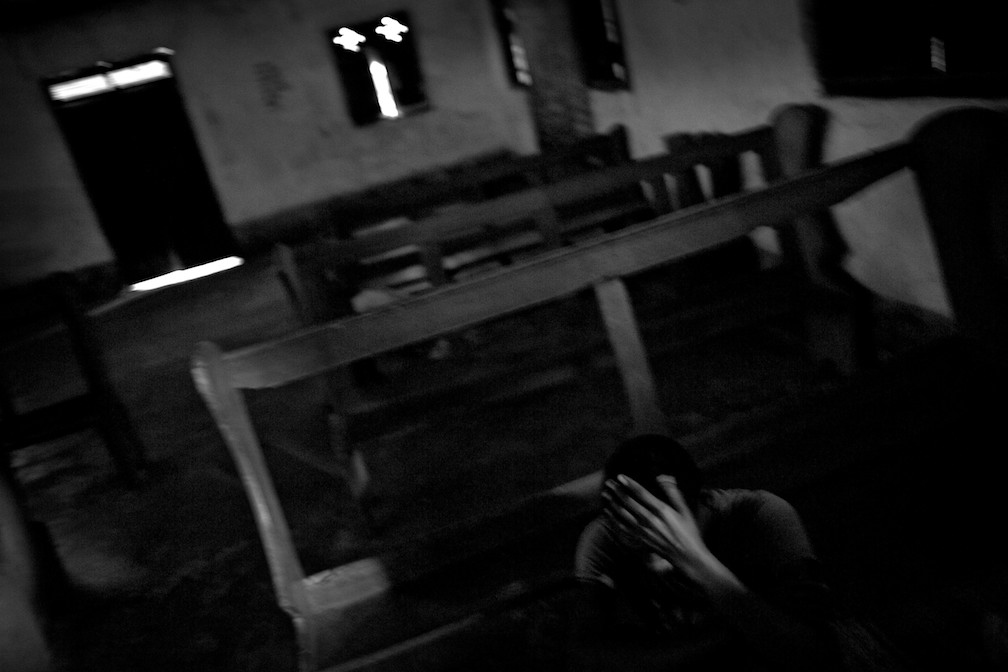 Thirty-one year old Endurance has been in the care of Reverend Tambari for sic months and now sleeps in the church. The Niger Delta, Nigeria.
Thirty-one year old Endurance has been in the care of Reverend Tambari for sic months and now sleeps in the church. The Niger Delta, Nigeria.
